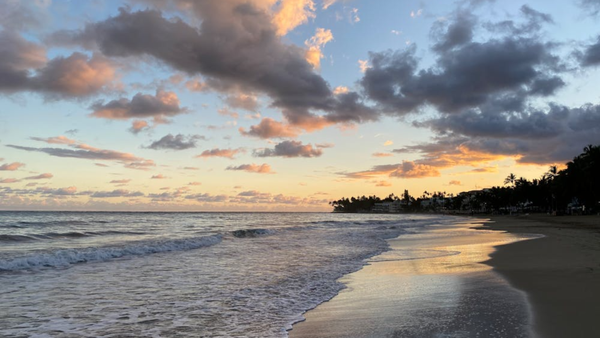Climate change lawsuits have become a new way for countries to assert their rights against actions that degrade the environment. But African countries have yet to fully exploit this route.
In the Netherlands, the court found that greenhouse gas emissions breached the rights to life and private and family life that are protected by the European Convention on Human Rights.
In Germany, the court found that the government had breached the Climate Protection Act by not setting out a plan to reduce greenhouse gas emissions after 2030. This meant that future generations would unfairly bear the burden of trying to limit climate change.
Africa is the continent that’s most vulnerable to the impact of climate change. At the same time, it has contributed least in the world to greenhouse gas emissions.
However, African countries have not taken up many climate court cases, mainly because they lack resources. They are also hampered by weak climate laws, limited expertise to gather and present evidence in court, and their economic reliance on extractive industries which they may not want to sue in court.
One of the few African climate lawsuits was brought by the South African environmental justice group EarthLife Africa Johannesburg. It took the country’s environment ministry to court to cancel the government’s approval of new coal-fired power plants. The Pretoria high court held that the approval was unlawful because it had failed to consider how new coal-fired power stations would make climate change worse.
Another case was filed in 2020 by civil society groups that sued the governments of Uganda and Tanzania over the East African Crude Oil Pipeline for breaching human rights and damaging the environment. The East African Court of Justice dismissed the case after the activists missed the deadline to file documents. The groups have appealed against the dismissal, but this highlights some of the difficulties in bringing international climate litigation.
In May 2025, the Pan African Lawyers’ Union asked the African Court on Human and Peoples’ Rights for an advisory opinion (still to be issued) on the obligations of African states to protect human rights in a time of climate crisis. This case was brought in collaboration with the Africa Climate Platform, the Environmental Lawyers Collective for Africa, Natural Justice, resilient40, and other environmental justice organisations.
I am an environmental justice researcher who examines how ecocentrism (valuing the entire interests of ecosystems over human interests or individual companies interests) can be taken forward in African legal systems.
I argue that Africa should use three key international legal routes to amplify its voice in litigating against climate change.
1. The International Court of Justice
In December 2024, the International Court of Justice agreed for the first time to provide an advisory opinion on what states are obliged to do to fight climate change and set out the legal consequences for states that do not meet these obligations.
In late 2024, the court accepted inputs from countries that had already been affected by climate change. These included members of the Organisation of Africa, Caribbean and Pacific States and the African Union, and South Africa, Sierra Leone, Ghana, Kenya, Malawi, Namibia and Senegal. The court will hand down the opinion in late 2025.
Read more: Historic climate change advisory: what the case before the International Court of Justice might mean
Even though International Court of Justice advisory opinions are not legally binding, these proceedings were a milestone. They provided African countries with a good platform to raise their demands about the obligations of countries to protect the climate system in this time of global warming.
2. International Tribunal for the Law of the Sea
In June 2023, the African Union submitted a written statement in support of the request made by the Commission of Small Island States on Climate Change and International Law. The island states had asked the tribunal to set out how governments were obliged by the international marine treaty to prevent, reduce and control marine pollution caused by greenhouse gas emissions.
This was the first time the tribunal had formally considered the impacts of climate change on the marine environment. The African Union relied on important international environmental legal principles in its statement. These include the duty to avoid polluting the atmosphere and to prevent harm that takes place across borders.
These principles have been used by different countries in lawsuits previously. These cases form the legal basis for many climate lawsuits today.
The tribunal’s advisory opinions are not legally binding, but they also contribute to the development of international law, and again, could be useful for Africa to assert a strong, unified legal voice in the global fight for climate justice.
3. The United Nations Framework Convention on Climate Change
This 1992 convention has been ratified by many African states. It is a central international legal framework that guides global action on climate change. It has been the foundation for many international agreements on how governments will prevent climate change.
African countries will need to include international climate change agreements into their laws and policies. Not all African countries have climate change laws. Countries with climate change laws include Nigeria, Uganda and South Africa. More must follow.
Africa lacks the resources to prevent the worst effects of climate change and recover from the damage caused by global warming.
African countries must now take climate lawsuits forward to demand accountability, shape climate policies and safeguard the future.
By embracing regional mechanisms like the African court, using international legal instruments, and developing national climate laws, Africa can assert a strong, unified legal voice in the global fight for climate justice.
Oluwabusayo Wuraola is a Lecturer at Anglia Ruskin University and also a knowledge expert member of the United Nations Harmony with Nature Programme.
This article was originally published on The Conversation. Read the original article.







